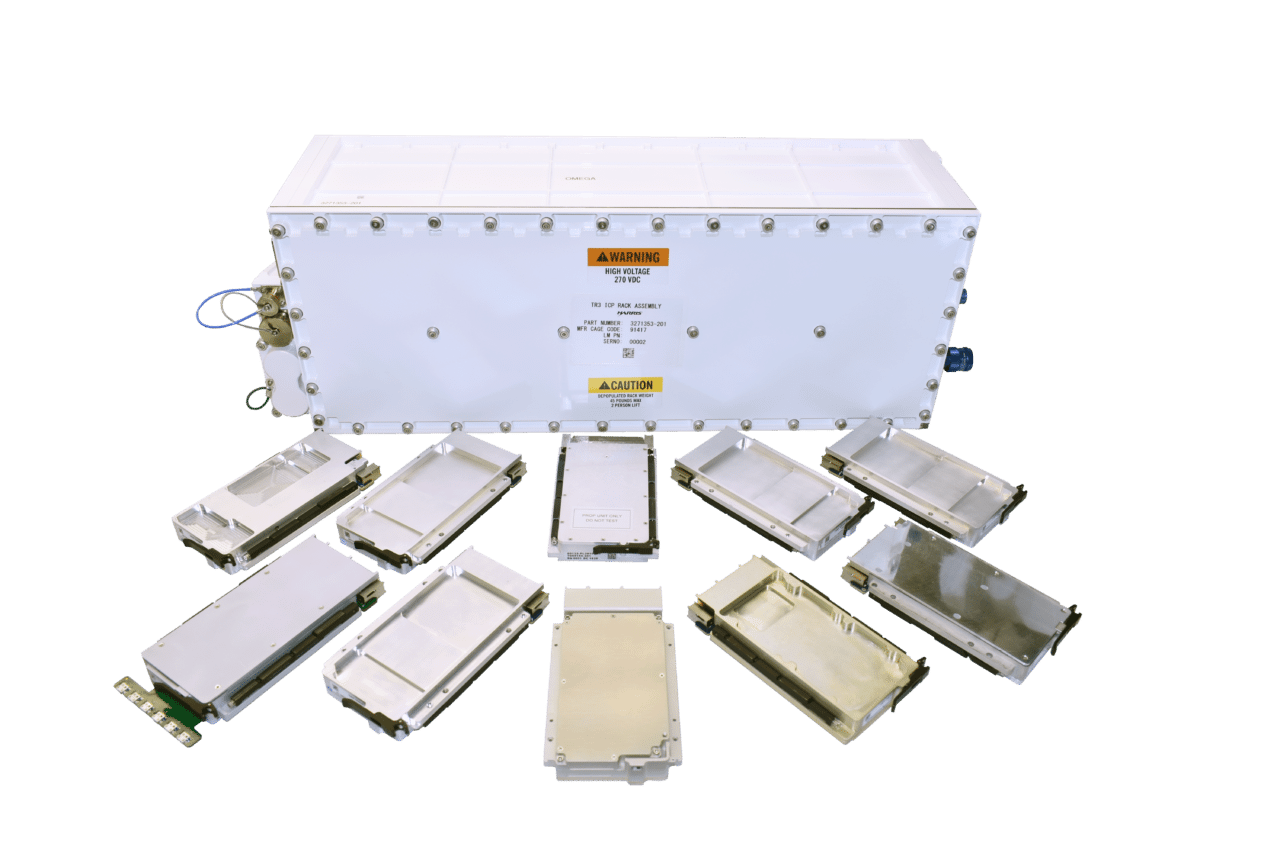
Lockheed Martin will use Harris-built integrated core processors for the next wave of F-35s (Harris)
The Lockheed Martin F-35 will run on a Harris-built integrated core processor (ICP) beginning in 2023, the two companies revealed Thursday.
The new ICP, the “brains” of the advanced fighter, promises 25 times the processing power at one-fourth the cost, according to Harris, and is built on an open-system architecture to enable easier future additions or upgrades, which fits in with Lockheed’s and the U.S. Defense Department’s goals.
“The new F-35 ICP will pave the way for system scalability well into the future,” said Ed Zoiss, president of Harris Electronic Systems, in a statement. “Open systems are the future of avionics and Harris has invested substantial R&D to deliver more affordable and higher-performance solutions than would have been possible using proprietary technology.”
The additional power is important as the ICP processes data for the F-35’s communications, sensors, electronic warfare, guidance and control, cockpit and helmet displays so the aircraft systems can help the pilot synthesize all of that data to inform decisions and actions.
“When you look at the amount of information being processed, it provides a lot higher reliability of that data coming to the pilot as well as flexibility in the pilot’s ability to get that information through the system,” said Bryant Henson, Harris Electronic Systems’ VP and general manager for avionics, in a phone conversation. “As capability increases on the aircraft, with this architecture, what we’re providing is the ability to scale with the capability needs and capability growth of the aircraft itself and the weapon systems.”
Henson said that the open architecture would not only enable future upgrades, but was also key to enabling the level of performance today at the attractive price point.
“The aim was really to reduce engineering development costs, simplify integration, really increase electronics density to facilitate those upgrades,” he said. “We’ve dramatically increased component standardization in the design. We’ve enabled our suppliers and technology partners to design and innovate within what I’ll call a set of defined interfaces and also put in place an architecture that’s dramatically increased the use of commercial off-the-shelf components — and that ultimately reduces long-term costs.”

Lockheed Martin will replace the current ICP with one by supplied Harris beginning in 2023. Image courtesy of Lockheed Martin
The ICP will be integrated starting with 2023’s Lot 15 F-35s, the same time as the switchover to Raytheon’s distributed aperture system. The ICP will be part of what Lockheed Martin is calling the joint strike fighter’s “technology refresh 3.” Additional elements in the tech refresh include the panoramic cockpit display electronic unit and aircraft memory system, which Harris was also awarded in recompetes last year.
Up to this point, and through Lot 14, ICPs have been provided by Lockheed Martin Rotary and Missions Systems. A spokesman for the company said there were several bids for the new contract, but would not reveal the companies. Lockheed Martin has consistently said all partners and suppliers are vulnerable to replacement in recompetes to keep prices as low as possible on the trillion-dollar jet.
“We are aggressively pursuing cost reduction across the F-35 enterprise and, after conducting a thorough review and robust competition, we’re confident the next-generation integrated core processor will reduce costs and deliver transformational capabilities for the warfighter,” said Greg Ulmer, Lockheed Martin VP and general manager of the F-35 program.
In addition to recompetes, Lockheed Martin is transitioning several F-35 suppliers to longer-term “performance-based logistics” contracts to enhance parts availability and reduce sustainment costs. The new five-year contracts allow each supplier to longer-term investments and actions to reduce costs and improve efficiencies, the company said.
Harris recently delivered its millionth product to the F-35 program at over a 99.95% reliability and Henson said being chosen for this contract is an affirmation of the company’s performance and its decisions on where to invest. He said the company has increased its manufacturing footprint four-fold to ensure it would have no trouble continuing to deliver on-time products to the F-35 as production ramps up in the 2020s.